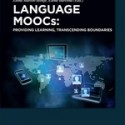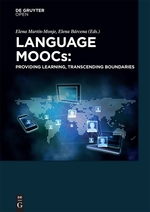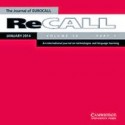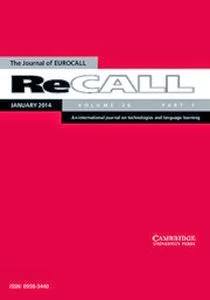Second CALL for Papers
XVIIth International CALL Research Conference: Task Design and CALL
(http://wwwa.fundacio.urv.cat/congressos/call-conference-2015/)
6-8 July 2015
Universitat Rovira i Virgili, Tarragona, Spain
More CFP here
The concept
In recent CALL articles, conference presentations and project proposals, we notice a renewed interest in activities, and less emphasis on technology or theoretical pedagogy. These activities, elective or compulsory, can be subdivided into three partly overlapping categories: (a) focus-on-form tasks which can be defined as meaningful tasks in which the focus on particular forms is tightly embedded; (b) focus-on-meaning tasks which should lead to communication (CMC approach) or any kind of non-linguistic outcome (TBLT approach); and (c) form-focused exercises that focus on isolated forms, such as improved and enriched (drill-and-practice) exercises.
During this conference we will discuss the design process behind these tasks: How do we decide on task types? How do we shape them? How do we monitor and evaluate them?
Submitted presentations should tackle questions such as:
– How do we design authentic, meaningful, useful and enjoyable tasks?
– To what extent do tasks depend on context?
– What can CALL learn from TBLT?
– What can TBLT learn from CALL?
– What affordances and limitations of technology should be considered in task design?
– How does technology impact on non-technological tasks?
– What are the specific challenges for LMOOCs, OERs, WebQuests, Interactive Whiteboards, Student Response Systems, Synchronous Collaborative Writing Tools, Serious Games… ?
– How do our tasks fit in with Complex Dynamic Systems Theory, Socioconstructivist environments, Flipped Classroom approaches …?
– What is the role of corrective feedback in tasks?
– What are the consequences for Learner Analytics?
– Which tasks are best suited for which skills?
– Which tasks are most appropriate for developing intercultural competence?
Keynote speakers
Prof. dr. Kris Van Den Branden, KULeuven, Belgium
David Collien, PhD researcher & VP Engineering OpenLearning.com, Sydney, Australia
Conference website
http://www.call2015.org
Awards
The conference organizers will reward the best paper submission as ‘selected plenary’.
The best presentation by a PhD student will receive the Jaclyn Ng Shi Ing Award, in memory of our friend and colleague who passed away in the tragic event of Flight MH17.
Call for Proposals
Just download the template provided on the conference website. Your submission should contain:
– 10-20 lines on the context of your research: situate your contribution;
– 20-40 lines where you focus on the conference theme and try to tackle one of the questions mentioned above.
Deadline for submission of abstracts: January 30, 2015
Notification of acceptance: February 23rd 2015
Deadline for submission of conference paper (1 000 – 3 000 words): March 20th 2015
Recommended reading
We have just published a Virtual Special Issue (http://explore.tandfonline.com/page/ed/ncal-vsi) of Computer Assisted Language Learning with a selection of 16 freely accessible articles which are highly relevant to the conference theme.
Other interesting publications include:
Doughty, C & Long, M. (2003). Optimal psycholinguistic environments for distance foreign language learning. Language Learning & Technology, 7(3).
Ellis, R. (2003). Task-based language learning and teaching. Oxford: Oxford University Press.
González-Lloret, M. & Ortega, L. (2014). Technology-mediated TBLT: researching technology and tasks. Amsterdam: John Benjamins.
Robinson, P. (2011). Second Language Task Complexity: Researching the Cognition Hypothesis of language learning and performance. Amsterdam: John Benjamins.
Van den Branden, K., Bygate, M. & Norris, J.M. (2009). Task-based Language Teaching. A reader. Amsterdam: John Benjamins.
Information and feedback
Contact Ann Aerts, conference manager: ann.aerts@uantwerpen.be
Looking forward to seeing you in Tarragona!
Prof. dr. Jozef COLPAERT
Universiteit Antwerpen – CST
Venusstraat 35 – Room 404
2000 Antwerpen – Belgium
Tel: 32 – (0)3 265 45 20 http://www.jozefcolpaert.net
Chairman Exam Committee OOW, Institute for Education and Information Sciences (IOIW)
Editor of Computer Assisted Language Learning, Taylor & Francis
Organizer XVIIth International CALL Research Conference (Tarragona 2015)
Organizer 2nd Imagine Learning Competition (Samsung Innovation Challenge)







